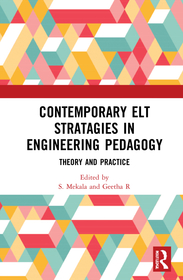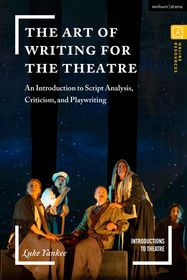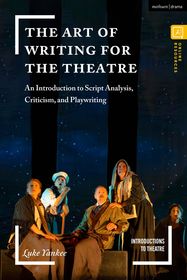
Contemporary ELT Strategies in Engineering Pedagogy
Theory and Practice
- Publisher's listprice GBP 41.99
-
20 060 Ft (19 105 Ft + 5% VAT)
The price is estimated because at the time of ordering we do not know what conversion rates will apply to HUF / product currency when the book arrives. In case HUF is weaker, the price increases slightly, in case HUF is stronger, the price goes lower slightly.
- Discount 20% (cc. 4 012 Ft off)
- Discounted price 16 048 Ft (15 284 Ft + 5% VAT)
Subcribe now and take benefit of a favourable price.
Subscribe
20 060 Ft

Availability
Estimated delivery time: In stock at the publisher, but not at Prospero's office. Delivery time approx. 3-5 weeks.
Not in stock at Prospero.
Why don't you give exact delivery time?
Delivery time is estimated on our previous experiences. We give estimations only, because we order from outside Hungary, and the delivery time mainly depends on how quickly the publisher supplies the book. Faster or slower deliveries both happen, but we do our best to supply as quickly as possible.
Product details:
- Edition number 1
- Publisher Routledge India
- Date of Publication 25 September 2023
- ISBN 9781032214634
- Binding Paperback
- No. of pages318 pages
- Size 234x156 mm
- Weight 453 g
- Language English
- Illustrations 13 Illustrations, black & white; 1 Halftones, black & white; 12 Line drawings, black & white; 46 Tables, black & white 498
Categories
Short description:
This book explores innovative pedagogical practices and teaching and learning strategies in the engineering curriculum for empowered learning.
MoreLong description:
This book explores innovative pedagogical practices and teaching and learning strategies in the engineering curriculum for empowered learning.
It highlights the urgency for developing specific skill sets among students that meet the current market recruitment needs. The authors present a detailed framework for fostering a higher level of competence in students especially in their communication skills, their knowledge of media and technology tools, and their leadership skills. The book offers examples of new and effective teaching strategies including cognitive, metacognitive, and socio-affective strategies which align well with the existing and evolving technical curriculum.
The book will be of interest to teachers, students, and researchers of education, engineering, and higher education. It will also be useful for English language teachers, educators, and curriculum developers.
MoreTable of Contents:
List of Figures. List of Tables. List of Contributors. Preface. Acknowledgements. Part I: Developing competency and skills 1. Need for remodeling the engineering curriculum 2. Integrated practice of learning strategies in the engineering curriculum Part II: Communication Skills 3. Bridging the Skills Gap in Technical Education 4. Task-based language teaching to foster greater communication skills Part III: Listening, Speaking, Reading and Writing Skills 5. Teaching LSRW Skills through the Test, Teach, Test (TTT) Method 6. Integrating the Sub-skills of LSWR for ESL Learners Part IV: English for Specific Purposes (ESP) 7. Value Addition to the Communication Course 8. Poetry in the Engineering Curriculum 9. Incorporating Thinking Skills in the Engineering Curriculum Part V: Approaches and Strategies 10. Pedagogical strategies in improving ESL learners’ speaking proficiency 11. Teaching speaking in Indian ESL classrooms 12. Improving reading proficiency in ESL learners Part VI: Digital Education 13. Techno-mediated teaching of English for engineers: perceived threats and hidden opportunities 14. Integration of Zone of proximal development (ZPD) and ICTs in language learning Part VII: Teacher Education 15. Towards designing a module for INSET 16. Reflective practice for teachers in the post-method era. Appendix A and B. Index.
More








